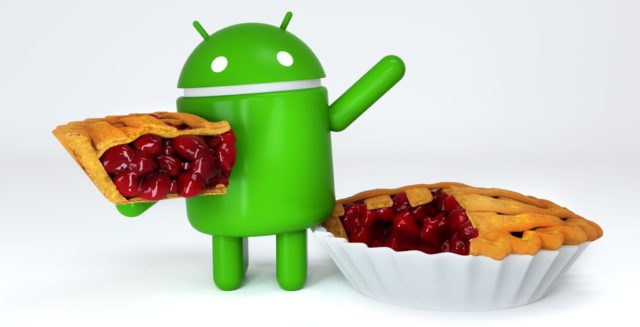Android Pie review: Shortcuts that make a difference
We give our verdict on Android’s latest operating system from a Pixel XL 2 smartphone.

Android is always a tough operating system to review because it varies so widely on every device it comes into contact with.
While efforts have been made to make it easier for smartphone makers to adopt the very latest version as quick as possible, Google’s own handsets remain the first and most advanced example of the operating system in action.

This applies with Android Pie, which was released to Google’s first and second generation Pixel phones last week, ahead of everyone else.
Google pledged to put predictive artificial intelligence at the forefront of its ninth effort. But does it actually make a difference?
Navigation
The three-buttoned menu set-up along the bottom has been an Android staple since the beginning, but in Android Pie it is no more.
Instead, there’s a single home button which pretty much acts as your single port of call to everything.
A gentle flick upwards of the home button no longer shows all your apps listed in alphabetical order. To do that, you’ll have to do a rather long swipe from the bottom of your screen, all the way to the top.
The gentle flick up now summons the overview pane, which offers a preview of your most recently used apps that you can swipe through.
As with anything at first, it’s a little jarring but you come to realise that it actually gets you where you want a bit faster than before. We found ourselves going to the full list of apps to find the app we wanted less often.
Most of us only use a handful of apps regularly – in our case, this consists of WhatsApp, Spotify, Instagram, Gmail and Chrome. On top of that, we tend to return to them several times a day, so we found that having the previews there to slide through more convenient than before.
However, Google’s attempt to offer multiple options is an unnecessary overload. While functional, the ability to hold the home button down and slide through the previews even faster probably won’t be used much, at least by us – although the feature is pretty hidden, so you could argue it’s not doing any harm.
Artificial intelligence

App Actions are a brand new addition to Android, harnessing the power of artificial intelligence to predict what you want to do.
On multiple occasions we found it to be useful and it certainly eliminated a few taps – it will know for example if you tend to check the calendar in the evening to see which shift you’re working the next day, or if you usually message a loved one on WhatsApp after work.
AI is also on hand to present icons of the apps you’re most likely to use, but this will only be available on Pixel phones, which is a shame for other Android handsets who miss out, as we found it useful.
It’s worth noting that Android Pie remembers the volume you set your Bluetooth headset at last time so that it doesn’t blast out.
Warnings and notification controls

Notifications can plague your phone and Google is all too aware of it.
It’s always been possible to disable certain apps from sending notifications but you had to go through all the settings to do it.
AI comes into play again here, as Android will notice the apps you always slide to dismiss and suggests disabling notifications from that particular app altogether for you.
Likewise, battery warnings have got a little more meaningful, moving away from basic percentages, to informing you with an estimate time that your handset will switch off based on your current level of usage.
Adaptive technologies
The adaptive brightness and battery features are tricky to assess, as we haven’t noticed anything different.

Battery and performance feels the same as before, and we found ourselves still having to adjust the brightness manually quite often.
It could be that Android is still getting to grips with our habits in this case but so far we’re less convinced the adaptive features are making any difference.
Verdict
Android Pie is a natural progression from its predecessor and has added some tweaks, such as the App Actions, that we found to be genuinely useful, instead of gimmicky.
The changes to navigation are a bold move that goes in the right direction but could do with some refinements to make access to the full page of apps simpler.
We’re concerned that every Android smartphone may not be able to enjoy everything Android Pie has to offer as smoothly as our Pixel XL 2 did, but this is the risk with such a fragmented operating system and we will only find out for sure when Android Pie is rolled out further.
4/5






